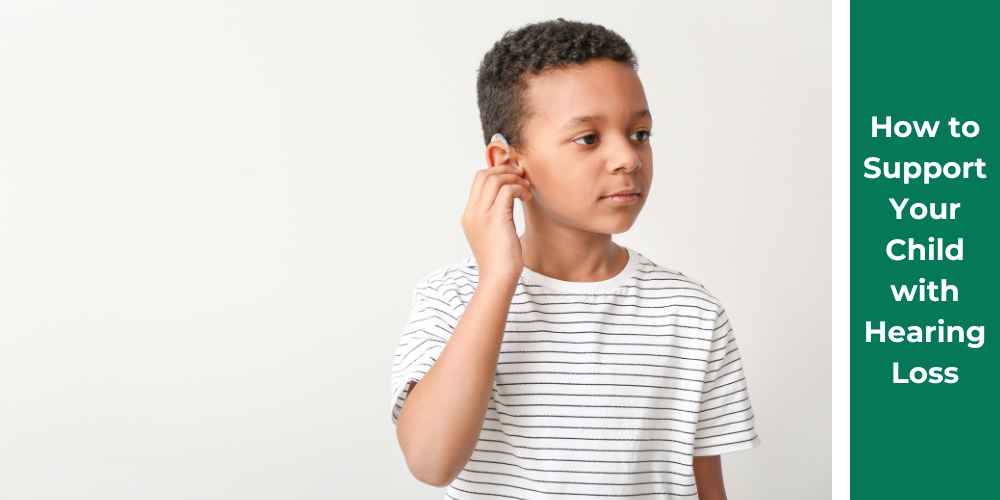
Your child starts the new school year, excited to learn and make new friends, but within the first week, their teacher gently raises concerns and believes your child may be experiencing hearing loss. Our article identifies the different types of hearing loss, offering insights into what your child may be experiencing. This moment can be important in ensuring your child receives the support they need to thrive academically and socially. Here’s how you can navigate this situation and empower your child throughout the school year.
Schedule a Comprehensive Hearing Exam
After your child’s teacher shares their observations, it’s important that you schedule a comprehensive audiology appointment. A visit to an ENT specialist can help in providing a clear understanding of your child’s hearing abilities, reverse any treatable causes such as ear fluid, and identify any potential challenges they may face in the classroom. Early intervention such as ear tubes or hearing aid devices are crucial for addressing any hearing loss effectively. Studies show that children who receive early intervention services, such as hearing aids or cochlear implants, demonstrate significant improvement in language skills compared to those who receive intervention later (CDC).
Connect with the School
Sharing the results of your child’s comprehensive hearing exam with their teachers and administrators is key for open communication. Together, you can create a tailored plan that meets your child’s needs, including considerations like optimal seating arrangements and the use of assistive listening devices during lessons. The collaborative approach can ensure that your child receives the necessary support for academic and social success throughout the school year.
Empower Your Child
Empower your child by openly discussing their hearing loss in a positive light. Help them build confidence in expressing their needs to teachers and classmates. Teaching effective communication strategies, such as sitting at the front of the class for better hearing or using visual cues during conversations, will enhance their ability to participate actively in school activities. This proactive approach can foster independence and ensures your child feels supported and included.
Partner Up for Success
Collaboration among parents, educators, and healthcare professionals is essential. By working together, you can develop an Individualized Education Program (IEP) specifically tailored to meet your child’s unique needs. Approximately 53% of children aged 3-17 years with hearing loss use hearing aids, demonstrating the important role these devices play in improving communication in educational settings (NIDCD). This approach, combined with regular meetings with your ENT specialist and audiologist, will ensure that your child’s hearing aids are effectively optimized for academic success.
Continued Success for Your Child with Hearing Loss
Your child’s hearing loss might be challenging at first, but learning of this early in the school year presents an opportunity for proactive support and advocacy. By scheduling appointments promptly with an ENT Specialist, fostering open communication with the school, exploring assistive technologies, and empowering your child, you can ensure that your child receives the support they need to thrive academically and socially.
Every child deserves an inclusive and supportive learning environment. By taking these proactive steps, you can make a significant impact on your child’s educational journey and overall well-being.
For more information on managing hearing loss in children or to schedule an appointment with our dedicated ENT team, contact Texas ENT & Allergy today. We are here to support you and your child every step of the way.



